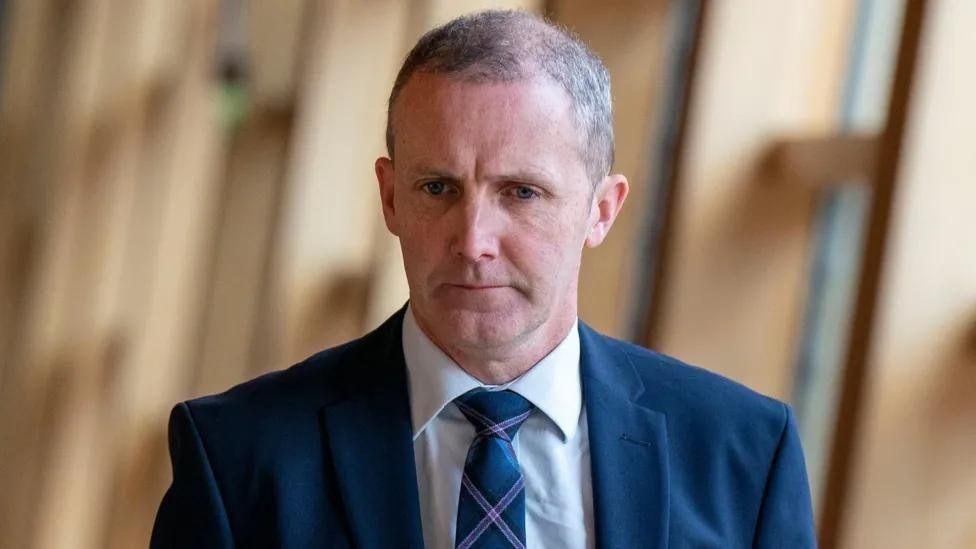How important is Scotland in deciding the UK election?
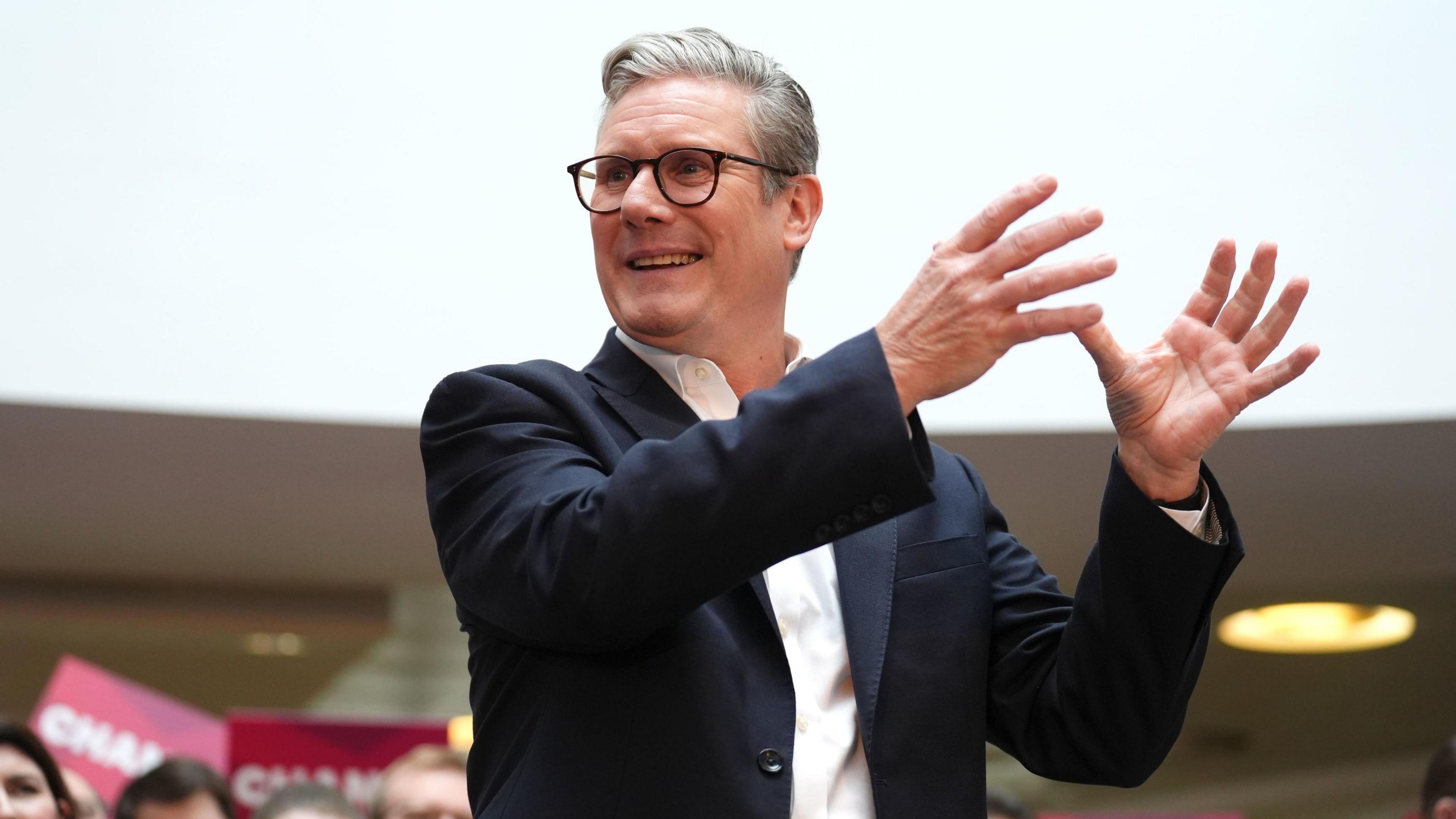
Sir Keir Starmer launched Labour's election campaign with a speech in Glasgow
- Published
Does the path to 10 Downing Street run through Scotland? The Labour leader, Sir Keir Starmer, appears to think so.
Campaigning in Glasgow, he argued that only a strong Scotland can ensure "national renewal".
He added: "There is no change without Scotland, there is no Labour without Scotland, Scotland is central to the mission of the next Labour government".
Both Sir Keir and the Conservative leader Rishi Sunak are hoping that this election marks the end of an era in which the Scottish National Party has dominated Scottish politics.
Campaigning in the port of Nigg on the Cromarty Firth in the Highlands on Thursday, the prime minister criticised the SNP for imposing higher taxes on workers earning more than £28,500 in Scotland than elsewhere in the UK.
Mr Sunak said the SNP was "completely out of touch with the needs of ordinary Scottish people" and also wanted to "tear our United Kingdom apart".
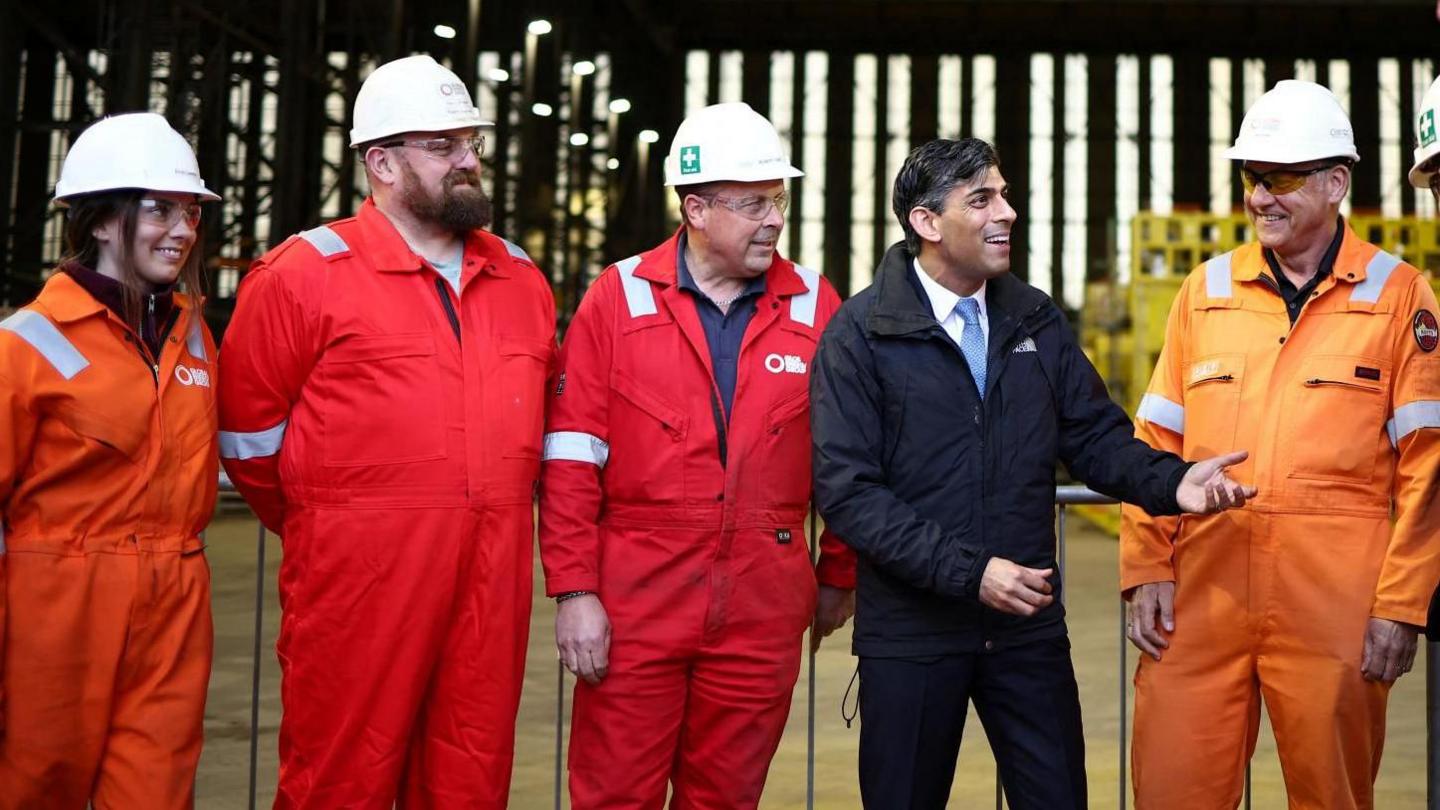
Rishi Sunak met workers involved in offshore wind energy at Nigg, near Inverness
The fact that both of the main UK parties are already spending time talking about the SNP reflects both the strength of Scottish nationalism in recent years and the party's apparent weakness now.
The SNP has been the dominant force in Scottish politics since Alex Salmond's victory in the 2007 Scottish Parliamentary election and, since 2015, Scotland's largest party at Westminster when, led by Nicola Sturgeon, it won an incredible 56 of the nation's 59 seats.
At the most recent general election, in 2019, the SNP took 48 seats, the Conservatives six, the Lib Dems four, and Labour — for decades the powerhouse of Scottish politics — just one.
Since then though Scottish nationalists have endured tough times.
Nicola Sturgeon resigned last year after progress towards a second independence referendum stalled.
Then, Humza Yousaf came and went as her successor, quitting just weeks ago after ditching a power-sharing deal with the Scottish Greens amid disputes about economic and social policy.
John Swinney is now in charge of the SNP for the second time in his long career.
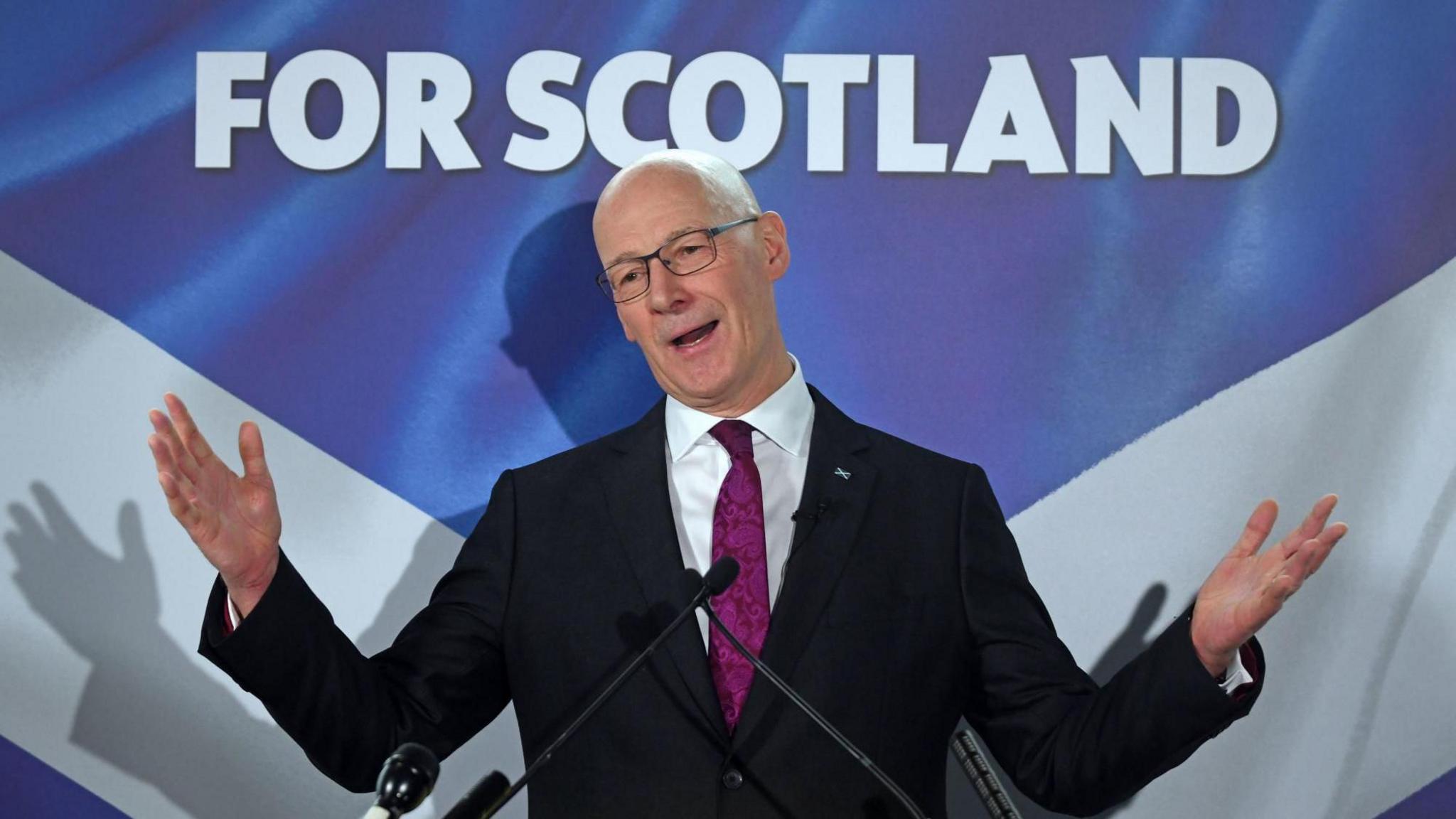
John Swinney kicked off the SNP's election campaign in Edinburgh on Thursday
Speaking at his first campaign event, in Edinburgh's Grassmarket on Thursday, Mr Swinney said the SNP was the party best-placed to oust "this disastrous Tory government."
But the first minister also acknowledged that his own party was facing big challenges.
They range from record NHS waiting lists, to a stubborn gap in attainment between the richest and poorest school pupils, to the highest level of drugs deaths in Europe.
Then there is the police investigation into the SNP's finances which has led to its former chief executive, Peter Murrell, who is married to Ms Sturgeon, facing charges in connection with embezzlement of funds.
Mr Swinney is also facing difficult questions about his position on a former minister who tried to claim an £11,000 data roaming bill on expenses.
Overall, the SNP is arguably in its weakest position since Scotland voted against independence by 55 per cent to 45 per cent in a 2014 referendum.
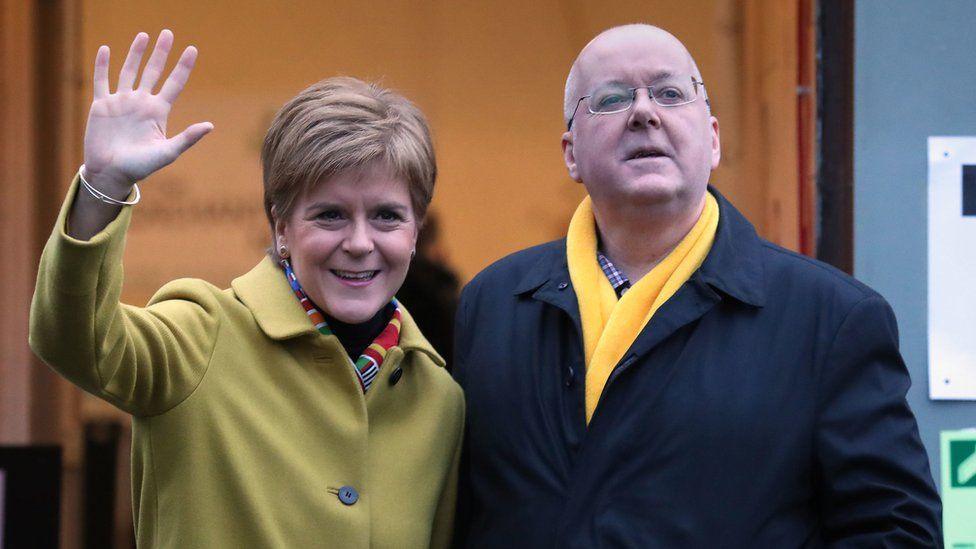
Nicola Sturgeon is married to former SNP chief executive, Peter Murrell
Four recent polls of Westminster voting intention suggest Scottish Labour now has a lead of around five percentage points over the SNP, according to Sir John Curtice, professor of politics at Strathclyde University.
Sir John says if this were to be replicated on polling day in a general election it could translate into 30 Scottish seats for Labour and 16 for the SNP.
So what issues are people in Scotland considering as they make up their minds?
Aside from the economy, Scottish voters tell pollsters they care most about the health service, housing and education, all three of which are the responsibility of the Scottish Parliament in Edinburgh, not the UK Parliament in London.
That does not mean they are irrelevant in this election though.
The Scottish government decides how to spend its budget but the overall amount it has available to spend is largely determined by Westminster.
Steeper mountain
Mr Swinney is hardly the only politician in these islands struggling to find a way to boost the economy and improve public services.
In fact, polls suggest Mr Sunak's Conservatives may be facing an even steeper mountain in this campaign.
The Tories have been around 20 points adrift of Labour in the polls for much of the past year.
With the SNP, says Sir Keir, voters can send a message to Westminster but with Labour "Scotland can send a government."
Mr Swinney retorts that there is now little difference between the two main UK parties.
"Keir Starmer now supports Brexit, whatever the cost to Scotland," he said, noting that the UK had left the European Union despite the opposition of a majority of voters in Scotland.
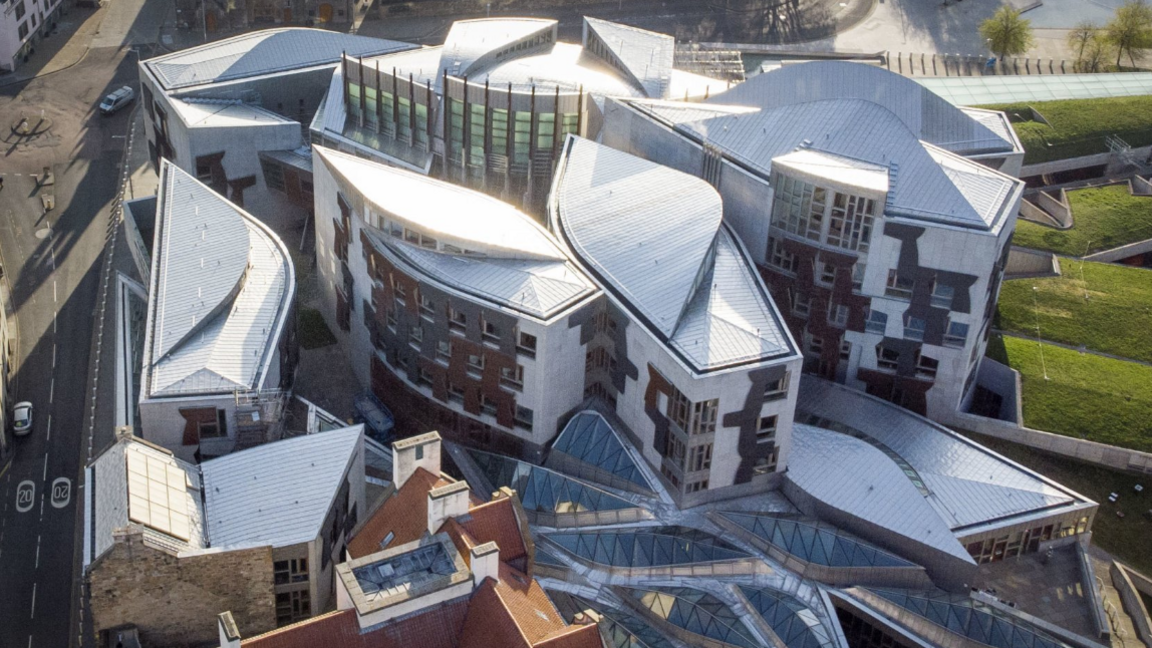
Health, housing and education are the responsibility of the Scottish Parliament
Scotland has traditionally leaned further to the left than England and, in trying to hang on to votes in what were once Labour's heartlands, such as Glasgow and Lanarkshire, the SNP have been keen to highlight tensions within the Labour movement over a range of issues, including Gaza, immigration, welfare and public spending.
At the same time Mr Swinney keeps trying to turn the attention back to independence, presenting it as an escape route from what the SNP call broken Brexit Britain — a nation of entrenched low growth, low productivity and high inequality.
Sir John Curtice says the reason for Mr Swinney adopting this tactic is clear: "While support for the SNP has fallen sharply over the last year, support for independence has not.
The SNP, he says, has lost "a significant proportion" of independence supporters to Labour, the Scottish Greens and Mr Salmond's Alba Party.
Persuading those voters to return to the SNP represents "the SNP's best hope of restoring its fortunes between now and 4 July," adds Sir John.
Although there is no clear mechanism for Scotland to actually achieve independence at present, because both the Conservatives and Labour are intent on blocking a second referendum, some unionists nonetheless argue that the issue must be addressed.
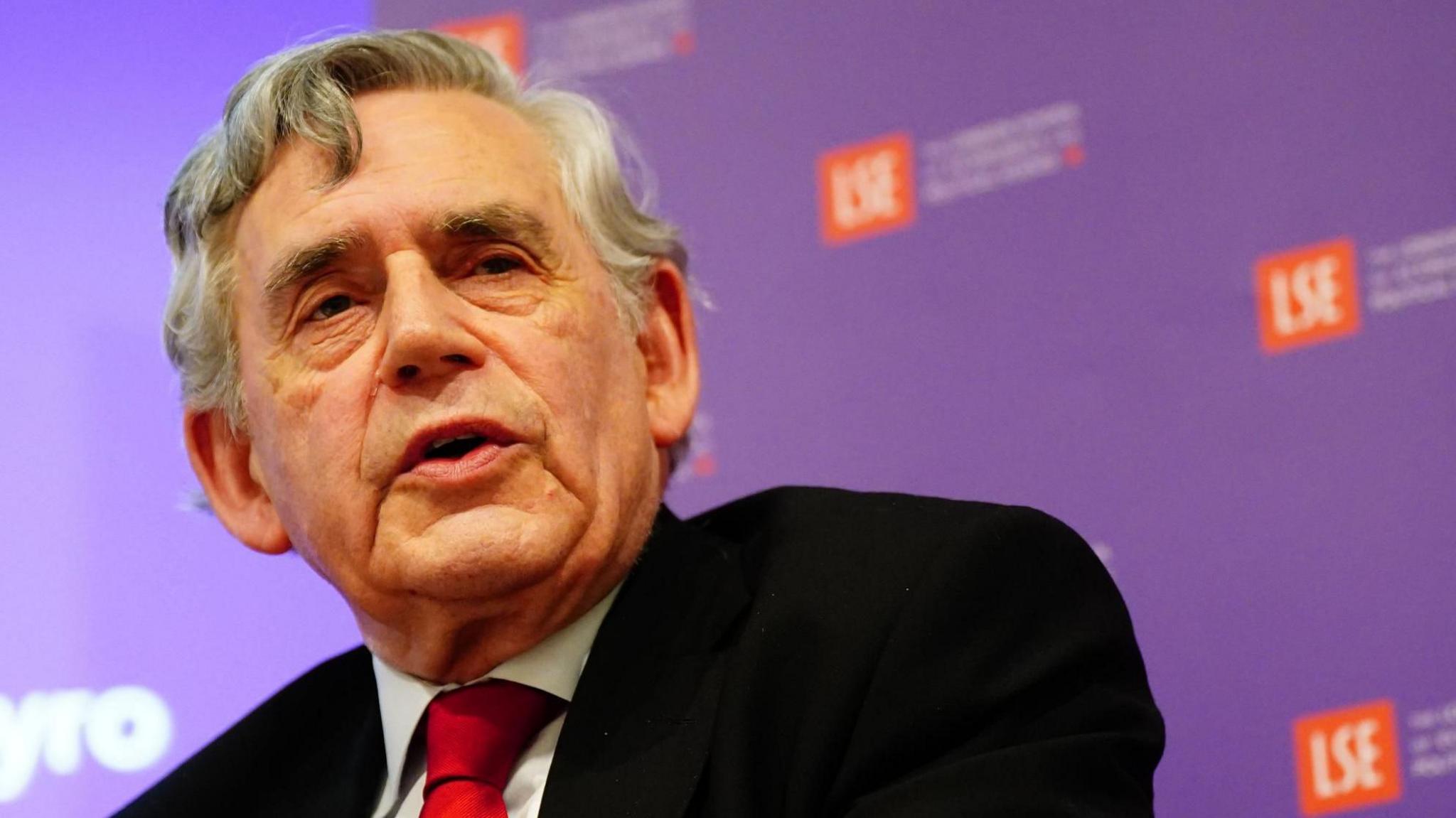
Gordon Brown said support for Scottish independence remained unchanged
In an interview with the Financial Times last month, former Labour prime minister Gordon Brown said that despite the SNP's troubles, "support for independence has remained exactly the same.
"In the long run," he added, "the forces pulling Britain apart are greater than the forces holding it together, unless something is done about it."
But if Scotland's constitutional landscape remains broadly the same, the electoral landscape does not.
There has been a widespread redrawing of the map for this poll, with the first boundary changes in Scotland since 2005.
The overall UK boundary changes modestly favour the Conservatives whose seat total using estimated 2019 results based on the new boundaries would increase by seven to 372.
In this "notional" scenario, which will form the baseline for TV, radio and online calculations of who is up and down on election night, Scotland has a net loss of two seats, down from 59 to 57.
Only the beginning
There are 27 notional SNP seats where Labour is in second place.
Arithmetically Sir Keir's top targets are East Lothian; Cowdenbeath and Kirkcaldy; Glasgow North East; Coatbridge & Bellshill; Airdrie & Shotts and Midlothian.
The SNP is second in all six notional Conservative seats, three along the border with England and three in the north east where the debate about the transition from oil and gas to renewable energy is likely to feature prominently in the campaign.
In addition, there are 18 notional SNP seats where the Conservatives are in second place.
Finally, there are three notional SNP seats where the Lib Dems are in second place.
"Scotland badly needs to change direction," said the Scottish Liberal Democrats' campaign chairman Lord Jim Wallace, a former deputy first minister.
"Every vote for the Liberal Democrats at this election is a vote for a strong local champion who will stand up for your community and health services," he added.
Of course this campaign is only just beginning. However it plays out will not, ultimately, be up to any politician, but to the voters.
- Published23 May 2024
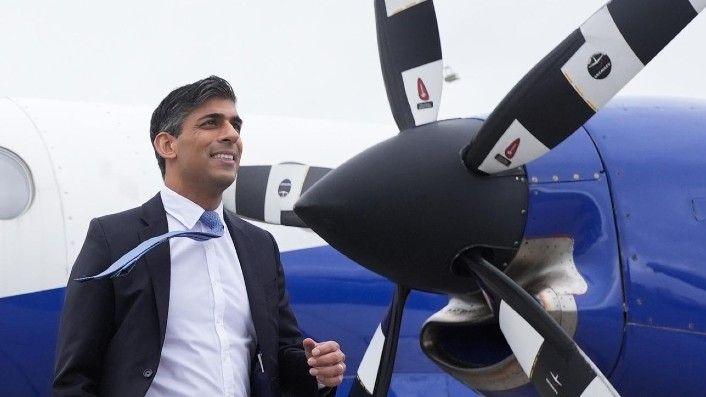
- Published23 May 2024
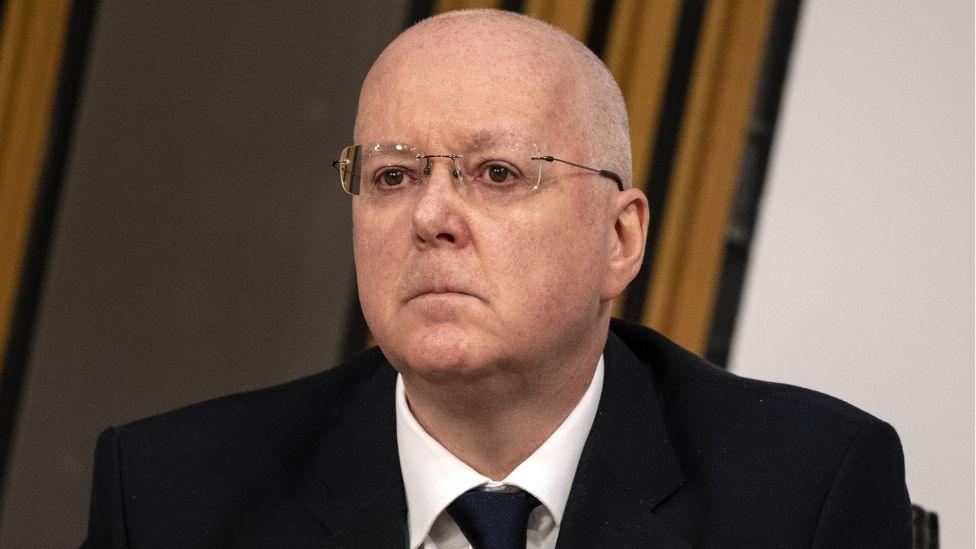
- Published23 May 2024
